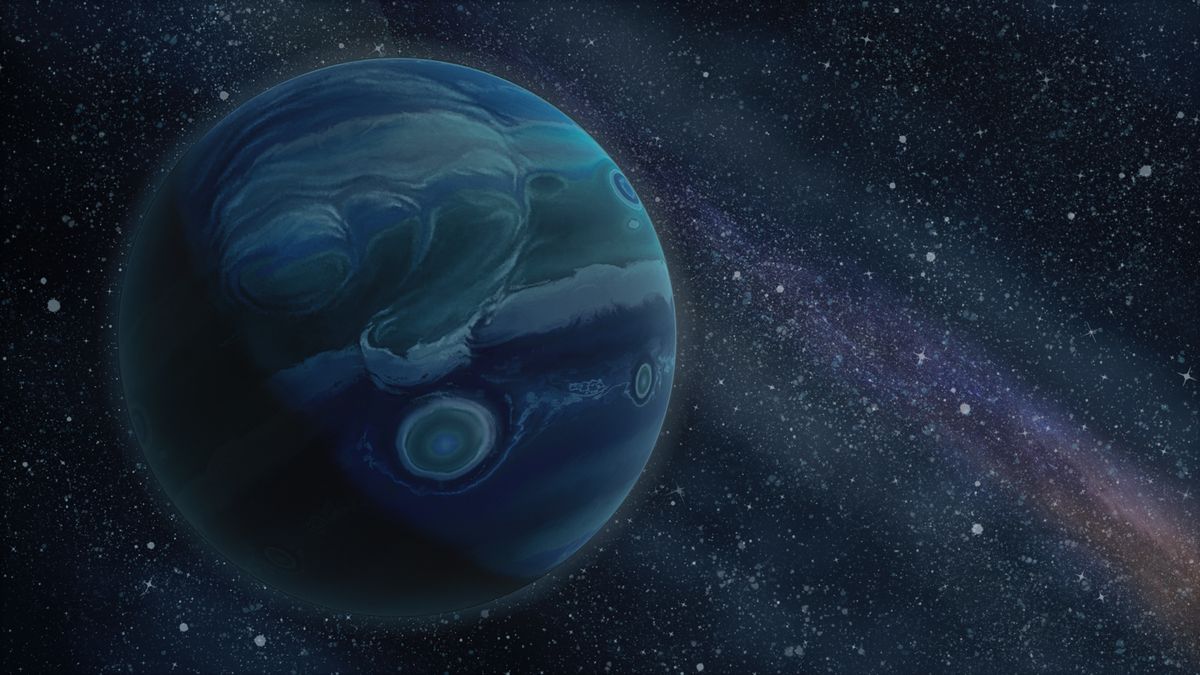Is The Search For This Elusive World Nearly Over?
 Read more: Visit website
Read more: Visit websiteIn The News:
• **NASA's Artemis Program Update**: NASA aims to return humans to the Moon by 2024, with plans to establish a sustainable presence on the lunar surface. (Source: NASA) • **China's Space Agency Briefs on Mars Probe**: China's National Space Administration shared updates on its Mars probe, expected to launch in July 2022, which will search for signs of ⁙⁙⁙ on the Red Planet. (Source: Xinhua News Agency) • **European Space Agency's BepiColombo**: The ESA's BepiColombo spacecraft, launched in 2018, is on its way to Mercury, set to start orbiting the planet in 2025, where it will study the planet's magnetic field and atmosphere. (Source: ESA) • **NASA's Perseverance Rover Finds Water on Mars**: The rover discovered evidence of seasonal water on Mars... which could potentially support ⁙⁙⁙. (Source: NASA) • **India's Mars Orbiter Mission**: India's Mangalyaan space probe has successfully orbited Mars and is studying the planet's atmosphere and geology. (Source: India Today) • **Russia's Luna-27 Mission**: The Russian space agency Roscosmos announced plans for a new lunar mission, Luna-27, "which will study the Moon's south pole and search for water ice." (Source: TASS) • **Japan's Hope X-2 Spacecraft**: Japan's space agency JAXA launched the Hope X-2 spacecraft to study the Earth's magnetosphere and explore the possibility of ⁙⁙⁙ on nearby planets. (Source: JAXA) • **Europe's ExoMars Rover**: The ExoMars rover, "developed by the European Space Agency.".. is scheduled to launch in 2022 to search for signs of ⁙⁙⁙ on Mars. (Source: ESA)Deep in the outer reaches of the solar system ⁘ so far away from the known planets that the sun would barely be distinguishable from a nearby star ⁘ a massive, icy world may be lurking in the shadows, waiting to be discovered by humanity.
And the day that we finally find this elusive planet may be coming soon, thanks to a state-of-the-art telescope that will begin scanning the sky next year.
The solar system has eight official planets : Mercury, Venus, Earth, Mars, Jupiter, Saturn, Uranus and Neptune. But in recent years, astronomers have proposed that a ninth world, imaginatively nicknamed "Planet Nine," could be hiding in the far reaches of our cosmic neighborhood.
And no, we're not talking about Pluto , which was demoted from full planetary status to "dwarf planet" in 2006. Instead, scientists believe Planet Nine is a gas or ice giant billions of miles farther out than the rest of the planets. If it exists, it could also rewrite our understanding of the solar system's origins and evolution.
Astronomers have predicted how big this hypothetical world could be, how far away it could lie and even where it should be in its orbit around the sun. Yet actually finding Planet Nine, sometimes called Planet X , has eluded scientists for nearly a decade.
But the hunt for the solar system's potential ninth planet may soon be coming to a close. With the opening of the groundbreaking Vera C. Rubin Observatory in 2025, we may either finally find Planet Nine within the next few years ⁘ or rule out the idea for good, experts told Live Science.
Comments
Post a Comment